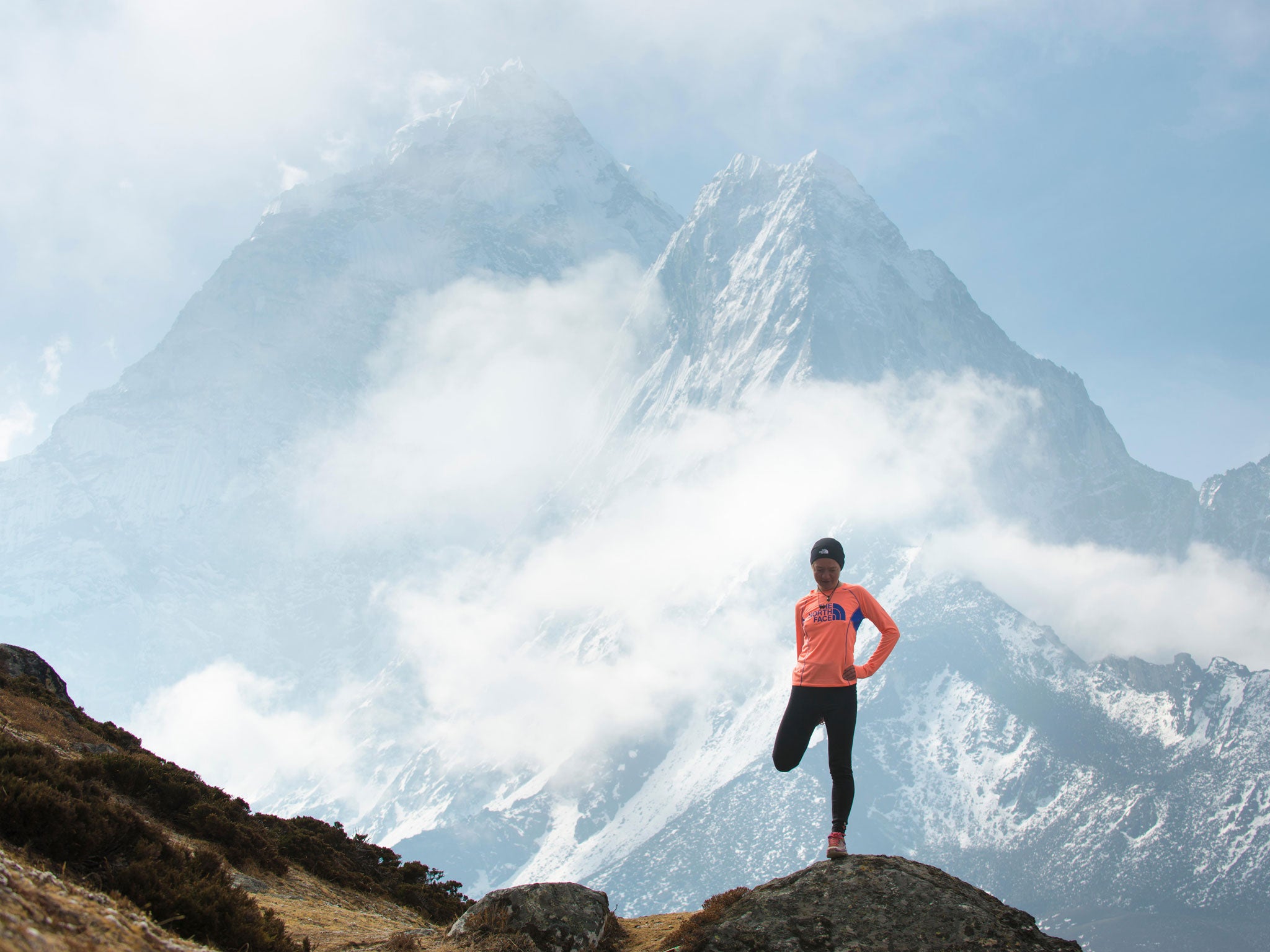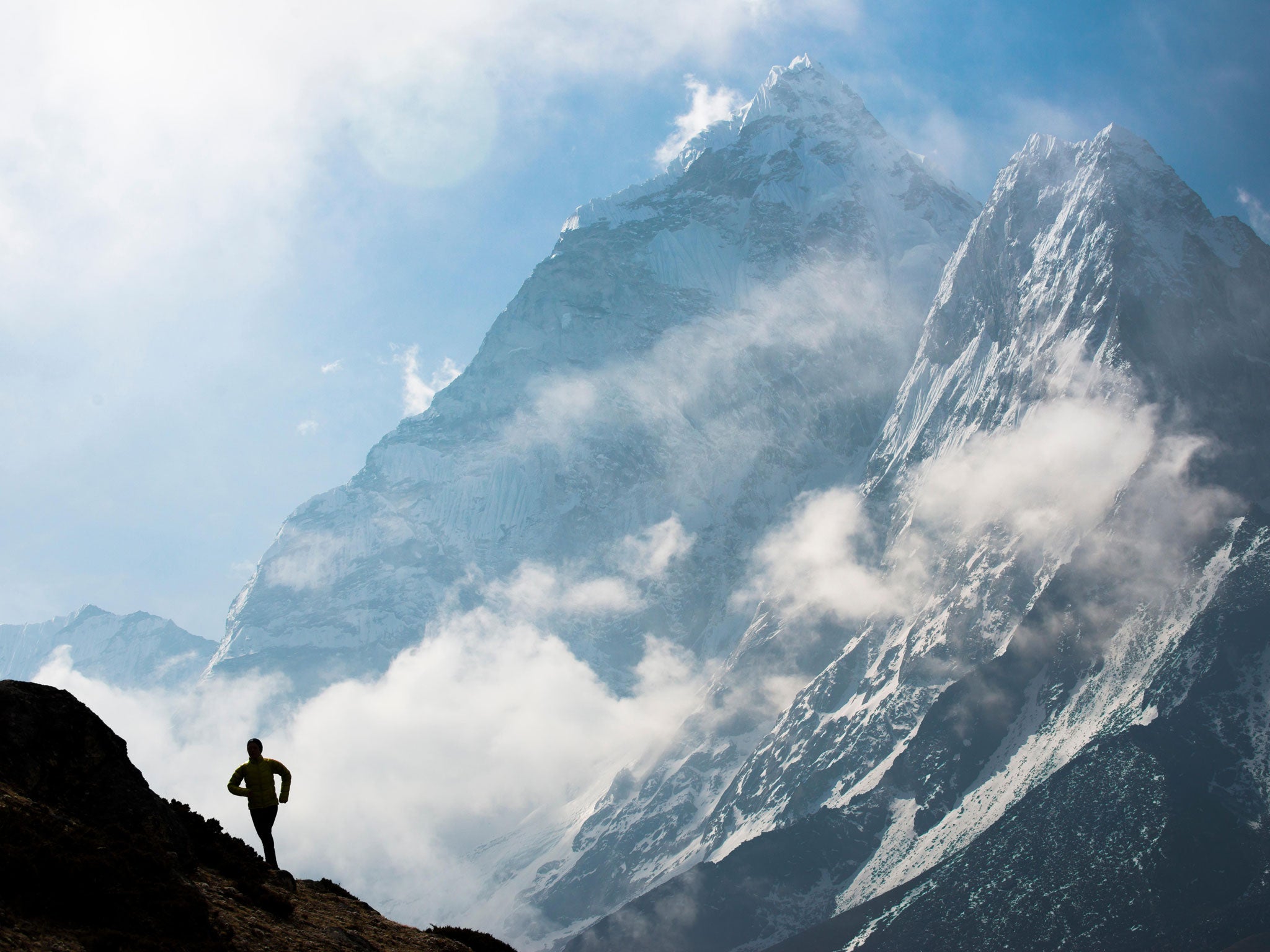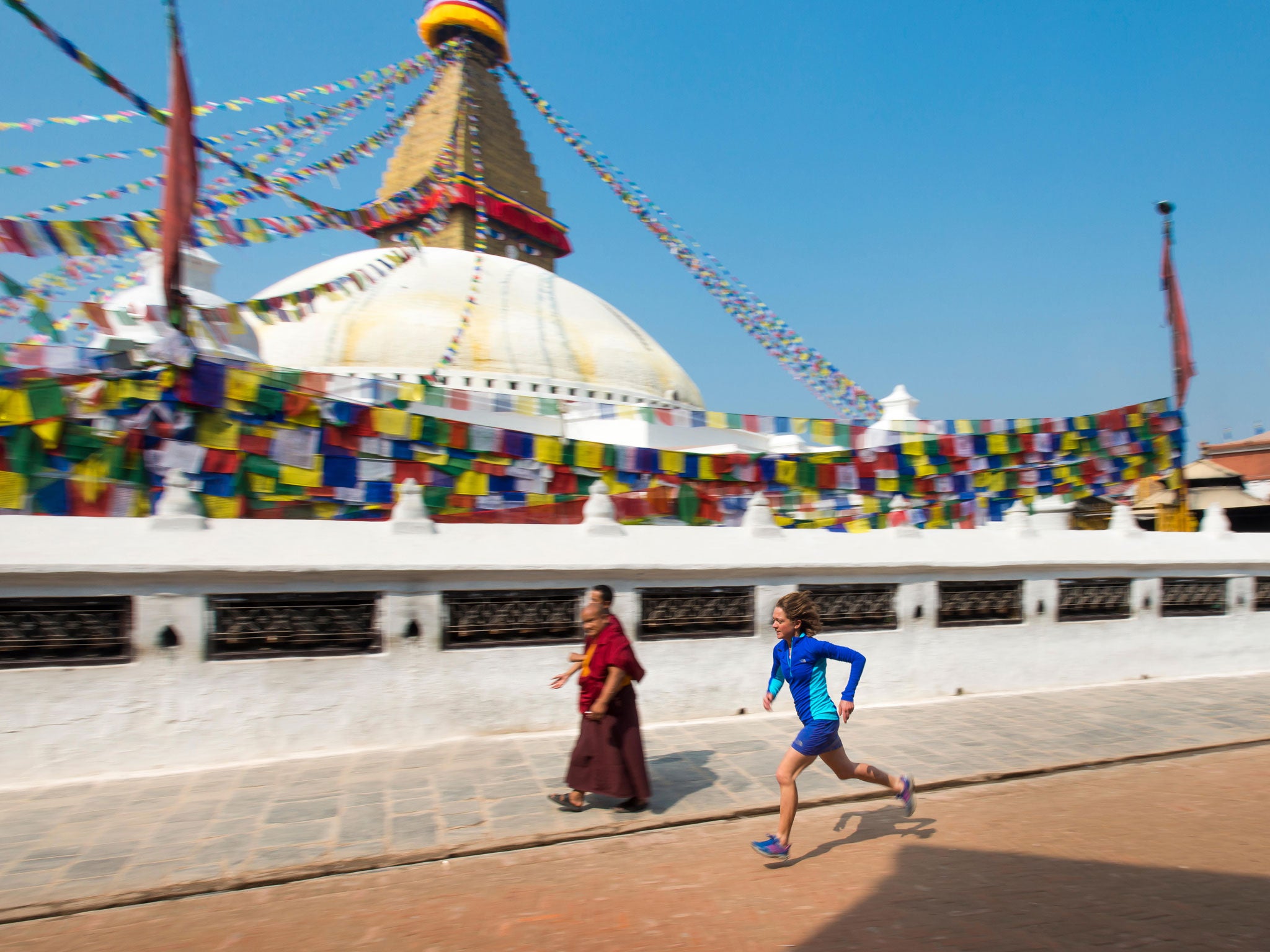Lizzy Hawker: What you can learn from Britain's greatest ultra marathon runner
Anyone, it seems, can run a marathon these days. But 40 miles? 50 miles? 100 miles? Lizzy Hawker - star of the burgeoning 'ultra' scene - tells Sophie Morris how she does it, and how you can too

Your support helps us to tell the story
From reproductive rights to climate change to Big Tech, The Independent is on the ground when the story is developing. Whether it's investigating the financials of Elon Musk's pro-Trump PAC or producing our latest documentary, 'The A Word', which shines a light on the American women fighting for reproductive rights, we know how important it is to parse out the facts from the messaging.
At such a critical moment in US history, we need reporters on the ground. Your donation allows us to keep sending journalists to speak to both sides of the story.
The Independent is trusted by Americans across the entire political spectrum. And unlike many other quality news outlets, we choose not to lock Americans out of our reporting and analysis with paywalls. We believe quality journalism should be available to everyone, paid for by those who can afford it.
Your support makes all the difference.Why, Lizzy Hawker asked herself, lying on her back in total darkness on a strip of road leading into Kathmandu, with the wild beauty of Everest above her, and the bustling chaos of Kathmandu just 15km below. "Why, already hours into the third night, am I still asking my body to run?"
More than 60 hours have passed since Hawker left Everest Base Camp for the 320km run down to the Nepalese capital, a journey with over 10,000m of ascent and 14,000m descent. This, in 2013, is her third attempt since 2007. There are no other competitors, no one to beat but herself, no prize money or podium moment – only the breaking of her own records on a trail which has come to hold a special significance for the British ultra-runner.
She manages to pull herself to her feet and begins to put one in front of the other, moving through the heavy rain to the stadium finish line where a few friends are waiting with beers and hot, sweet tea. There Hawker discovers her time – 63 hours 8 minutes compared to her previous 71 hours 25 minutes, and 74 hours 36 minutes. She's done it.
Is she happy? She remembers feeling relief at the end of the race but also a "loss of purpose". She realises that a new, bigger, challenge awaits her: to run there and back. Her dream now is to race from Kathmandu up to Everest Base Camp, and down again. "The threefold challenge of altitude, distance and time. Bonkers," she admits in her exhilarating memoir, Runner.
Hawker is one of the world's best ever ultra and endurance athletes. Anyone who even dabbles in this type of sporting event will know her name and her exploits well. She has always loved running and exploring mountains, but a surprise win in the renowned Ultra-Trail du Mont-Blanc (UTMB) in 2005 revealed her aptitude for extreme events, and in the decade since she has wowed the running community with her achievements. These include winning the UTMB five times out of six attempts, winning gold for the 100km at the World Championships in Korea in 2006, and setting a new record in 2011 for the greatest distance covered in 24 hours on the road, 247.07km.
She has been slowed by injury over the past few years, but is tentatively coming back into form and completed an 80km race in Nepal on 2 January. She has also been using her time to plan her own ideal race for 2016, the Ultra Tour Monte Rosa (UTMR), a 116km trail across the Italian and Swiss Alps, her favourite training ground when she was preparing for the Mont Blanc races.
Hawker runs to find balance rather than to take herself to extremes. "Endurance is really more a way of living than just a sport," she explains from Kathmandu, a city she has come to know well. She spends much of her time here, raising money for charity in the wake of the Nepal earthquake and living peripatetically between races, training, and wherever she needs to be to earn some money to keep her feet on those trails. Before running took over she worked as an environmental scientist for the British Antarctic Survey.
"As a child I preferred to walk rather than take the bus and I just found moving under my own effort more appealing. By the time I came to run that first UTMB I was used to long days on my feet – mountaineering, hiking as well as running – and for a long mountain ultra like the UTMB 'time on feet' is good preparation."
Hawker is unique of course, but participants in ultra-running and extreme endurance events are becoming less rare. Over the decade in which she's been competing the sport has grown exponentially: the UTMB started in 2003 with a few hundred runners but this year 2,300 hopefuls will be waved off from Chamonix's town square, along with thousands more taking part in variations of the full event. The length of the race is never exactly the same, but this year it will reach 170km – 105 miles, the equivalent of four marathons – which must be completed within 47 hours.

There is support along the way, but the idea is the runners are semi self-sufficient. And to anoint the sport officially, in a move that seems long overdue, last year trail running was recognised as an athletic discipline by the International Association of Athletics Federations (IAAF).
You may have heard of some of the crazier-sounding endurance events. The Western States 100 for example, which demands a journey of 100 miles starting in California's Squaw Valley. And there's a catch – you need to finish in 30 hours. Begun in 1955 on horseback, in 1974 Gordy Ainsleigh completed the trail on foot. Now around 400 runners attempt the challenge each year, with a finish rate of between 60 and 83 per cent. It's one of four 100-milers in the US, including the Leadville 100, aka the "Race in the Sky", which begins at an altitude of 3,100m and reaches up to 3,850m.
"Ironmans (long-distance triathlons) and races like the Marathon des Sables (MdS) are the new marathons," explains Tobias Mews, an ex-army adventure athlete who chronicles his favourite runs in 50 Races to Run Before You Die (£16.99, Aurum Press, out 2 March). "Even though only 1 per cent of people have run one, no one's impressed by running a marathon any more. People are looking for bigger challenges. Once you get to 26.2m you can stop, that's it. But as soon as you creep over that into the ultra category it's all in your head."
The MdS is a 156-mile, six-day race across the Moroccan Sahara. Mews was the highest-placed Brit and 21st overall on his first attempt, in 2011, and 15th overall two years later. Astonishingly, he describes it as being "easy to finish". "That's not to say it's not difficult," he concedes. "It's a life-changing event, and it's very difficult to do well in, but you're looked after."
"I'm at that stage where I'm looking for something more interesting than your standard race. I want a degree of self-sufficiency, navigation and the jeopardy factor."
An "ultra" race can mean anything over 26.2 miles, and is often 50 miles, 100 or even more. The sport is growing in the UK in particular, and entries for the 2015 Lakeland 50-mile and 100-mile events filled up within 10 minutes. Continental Europeans have typically had the edge at competition level because, Mews points out, "their playground is more impressive", but the calibre of UK races is improving, because runners want to get the same sort of experience they might in the expanses of European mountain ranges.
The 100km "Race to the Stones" is working to provide just this experience, with its supported route along the historic Ridgeway, which may be Britain's oldest road, past the Uffington White Horse in Oxfordshire to Avebury Stones in Wiltshire. This is the UK's largest ultra-marathon, with over 2,000 participants. Almost half the entrants are female.

Who is fuelling this boom in endurance running? "I think the reasons that people take up ultra-running are as diverse as the trails and roads we run on," says Hawker, "and are the same reasons that people run at all levels – health, fitness, curiosity, wanting to explore the world around them, wanting to explore their own personal limits. Perhaps the more sedentary and comfortable our daily lives become the more we need to look for something that challenges us in a very immediate way. Some people find this challenge in endurance events. It's great to see how it has grown widely and throughout the world. The sport now also receives far greater media coverage."
Fancy your chances? Hawker shares her advice for getting started: "Just start! Build up slowly and do what you enjoy. The main thing is to do it because you want to – have a curiosity to take opportunities and to learn that perceived limits are usually only self-imposed.
"I think that the longer the distance the more that mental strength is as important – or more so – than physical ability. Whatever body type you are, you can train so that you can perform to the best of your own personal ability. The important thing is to do it because you love it, then more is possible than you realise.
One of the great things about ultra-running, which is true of very few sports, is that your achievements should improve with age and experience. Lots of us have learnt the hard way that there's no point chasing a PB in a 10k past the age of 30, but endurance events get easier with the passing of the years and the toughening up of your mind.
But is this sort of challenge actually good for us? Bashing our feet against hard surfaces and dragging our lungs up to high altitudes only to bring them crashing back down again sounds like torture. Is it healthy? "Anything taken to extremes can be unhealthy," admits Hawker, adding sagely, "but as it is said, 'everything in moderation, including moderation'. We were made to be active and to be constantly moving. So it could also be argued that running long distances is more natural than being sedentary and sitting for most hours of the day."
Registration for Hawker's Ultra Tour Monte Rosa is now open, by the way.
'Runner: A short story about a long run' by Lizzy Hawker is published by Aurum. Details of her ultra marathon are at ultratourmonterosa.com
Join our commenting forum
Join thought-provoking conversations, follow other Independent readers and see their replies
Comments